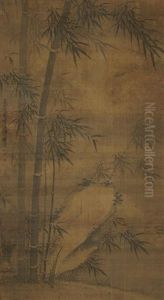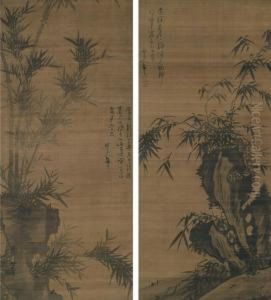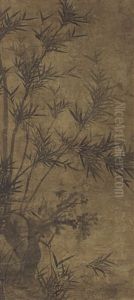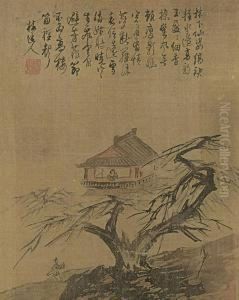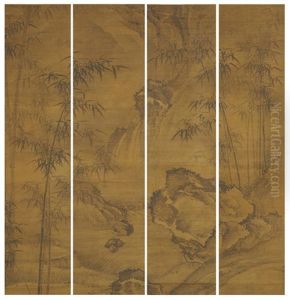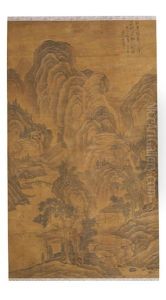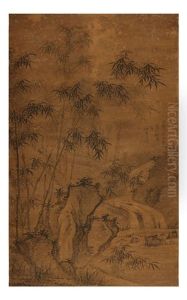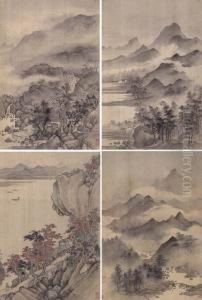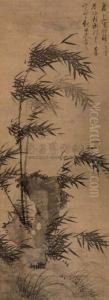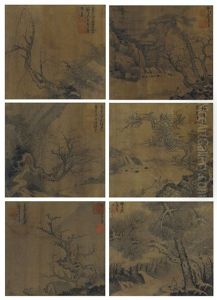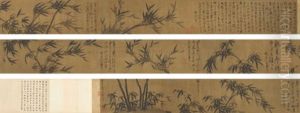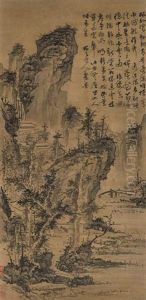Wu Zhen Paintings
Wu Zhen was a Chinese painter during the Yuan Dynasty, which ruled over China from 1271 to 1368. Born in the year 1280 in Jiaxing, Zhejiang province, he is one of the most respected artists of the 'Four Masters of the Yuan Dynasty,' a group that also includes Huang Gongwang, Ni Zan, and Wang Meng. Wu Zhen was a scholar, poet, and calligrapher as well as a painter, embodying the ideal of the literati or scholarly artist who pursued art as a means of personal expression rather than for financial gain.
Wu Zhen's life spanned a period of significant political change and upheaval, which is reflected in the literati culture of the time. The literati were often marginalized by the ruling Mongol class of the Yuan Dynasty, and their artwork was a form of silent protest against the ruling powers, emphasizing the values of personal integrity and the pursuit of artistic refinement over political office or material success.
Artistically, Wu Zhen is best known for his landscape paintings and his depictions of old trees, rocks, and fish, executed in the literati style that sought to express personal character and emotion. He was particularly adept at using the 'dry brush' technique, where the brush is relatively free of ink or water, resulting in a textured, dynamic effect that gives his paintings a strong sense of life and movement. His works often convey a sense of peace and solitude, reflecting the Daoist and Confucian principles that influenced much of Chinese scholarly art. Wu Zhen's influence on Chinese painting was significant and long-lasting, with his style and techniques being studied and emulated by generations of Chinese artists.
Wu Zhen's paintings were typically imbued with a strong sense of poetic and calligraphic quality, often accompanied by poems written by the artist himself. His integration of painting, poetry, and calligraphy into a single work of art was a hallmark of the literati aesthetic and illustrates the interconnection between these different art forms in Chinese culture.
Despite the high esteem in which he was held by later generations, Wu Zhen's life was not without difficulties. He is said to have declined official positions and instead lived a reclusive life devoted to his art. Wu Zhen passed away in 1354, leaving behind a legacy that would deeply influence the development of Chinese painting, particularly in the realm of scholarly painting, for centuries to come.
